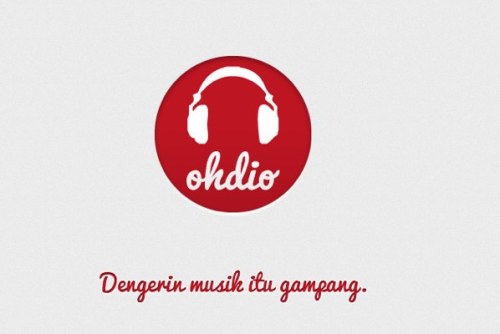Gauging Ohdio's Chances
 Everyone is well aware of Spotify's expansion to the region, having recently launched in Australia and New Zealand. There is also word that Deezer plans to come to town some time this year, so how does Ohdio plan to face those larger multinational competitors?
Everyone is well aware of Spotify's expansion to the region, having recently launched in Australia and New Zealand. There is also word that Deezer plans to come to town some time this year, so how does Ohdio plan to face those larger multinational competitors?
To start with, Ohdio will launch in Indonesia before their much bigger competitors do and the team is already experienced in dealing with music labels and artists in Indonesia. On top of that, Ohdio's focus on Indonesian music should differentiate them enough from Spotify and Deezer who are more likely to carry a library of international music.
How is this last point an advantage? The majority of songs enjoyed by Indonesians are from local artists, a fact that has always been repeated at many local digital music events. According to DailySocial columnist and Ohdio Cheerleader Ario Tamat, the proportion of local vs foreign music in Indonesia in terms of popularity and distribution is about 80:20 with the larger portion going to local artists. This imbalance is actually what Ohdio is counting on because being first in the market means almost nothing. It has to have enough of a value to be adopted ahead of the others.
That value might come from a feature that Ohdio is taking out of iTunes' playbook. Ohdio plans to have featured playlists from artists, public figures, and regular members as a way to help discover music and to highlight the musical tastes of certain individuals.
If done correctly, finding out what your friends listen to might be the big thing about Ohdio. If mixed tapes were the rage in past decades, playlists are what's popular among music fans since iTunes came on to the scene. Sure, there's 8tracks for playlist lovers but it's not streamlined enough to do it effortlessly and besides, playlist sharing is a feature, not a product.
Why is Ohdio even in the market? According to CEO Yoga Nandiwardhana, "I look at music as an ecosystem, and I see Ohdio as a part of it. There won't be a silver bullet that saves the industry, so to speak, but rather each component of the ecosystem needs to understand its place and purpose for the music world to survive and drive it forward."
In other words Ohdio wants to be the part of the ecosystem that delivers music to those who are no longer interested in enjoying music the old analog way. By being a streaming service, it creates that link between music and the digital consumer.
Nandiwardhana continues, "We don't expect people will "adopt streaming" per se, but we hope that if people were to choose between painstakingly searching for songs and downloading it, or finding it on Ohdio and start listening right away, they'll choose the latter."
That second option is certainly much more convenient and practical than having to look for songs in iTunes which is limited to only the songs you have collected. A streaming service with on demand tracks drawing from a massive library over the internet would almost always win over a limited collection of tracks inside a storage drive. Of course, this entire argument goes out the window once you're cut off from the Internet.
A service or product that only imitates an already existing one albeit not available in the local market is bound to face competition from the original which would result in one of the following outcomes: winning, losing, acquired. Which one will Ohdio end up with? Let's find out.
Before Ohdio launches next week, we have a sneak peek into what Ohdio will look like. Check it out on our Tumblr.
Sign up for our
newsletter
